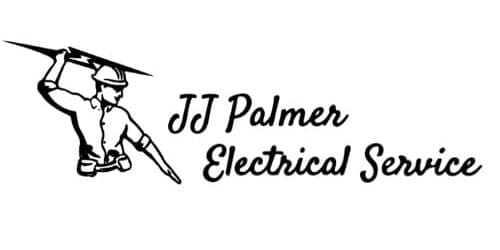Remanufactured Engines: Restoring Performance and Reliability
Remanufactured engines, also referred to as reman engines or rebuilt engines, are an economical and environmentally friendly various to purchasing new engines for autos and tools. These engines undergo a comprehensive remanufacturing course of that restores them to like-new condition, offering reliable efficiency and sturdiness at a fraction of the value of a brand new engine. In this article, we’ll discover the importance, process, benefits, and applications of remanufactured engines.
Significance of Remanufactured Engines
Remanufactured engines hold significant significance in the automotive and industrial sectors for several causes:
– Cost-Effectiveness: Remanufactured engines supply significant value savings in comparison with buying new engines, making them a gorgeous option for automobile homeowners, fleet managers, and tools operators.
– Environmental Sustainability: Remanufacturing engines reduces the demand for brand spanking new engine manufacturing and uncooked materials, contributing to useful resource conservation and environmental sustainability by minimizing waste and power consumption.
– Performance and Reliability: Remanufactured engines bear rigorous testing and quality control processes to guarantee that they meet or exceed OEM specs for efficiency, reliability, and durability, reparation Patio fibre de verre providing peace of mind to prospects.
– Availability: Remanufactured engines are available from a big selection of sources, together with OEMs, aftermarket suppliers, and specialized remanufacturing services, providing a handy and cost-effective resolution for engine replacement needs.
Process of Remanufacturing Engines
The remanufacturing course of for engines typically involves a number of key steps:
1. Core Acquisition: Remanufacturers purchase used engine cores from varied sources, including salvage yards, vehicle dismantlers, and core brokers, to serve as the premise for remanufacturing.
2. Disassembly: The used engine cores are disassembled into individual elements, together with the block, cylinder head, crankshaft, pistons, and connecting rods, utilizing specialized instruments and tools.
3. Cleaning and Inspection: Each element undergoes thorough cleaning and inspection to evaluate its situation and establish any put on, harm, or defects which will require repair or replacement.
four. Machining and Reconditioning: Components that are worn or damaged are machined or reconditioned to restore them to their authentic specifications, including cylinder boring, honing, crankshaft grinding, and valve seat machining.
5. Assembly: Once the components have been reconditioned, they’re fastidiously assembled into an entire engine using precision instruments, gauges, and meeting strategies to make sure proper match, alignment, and clearances.
6. Testing and Quality Control: The remanufactured engine undergoes rigorous testing and high quality control procedures to confirm its performance, reliability, and sturdiness, together with dyno testing, leak testing, compression testing, and visual inspection.
7. Packaging and Distribution: Once the remanufactured engine has handed all high quality control checks, it’s packaged and ready for distribution to prospects, together with any applicable warranty and installation directions.
Benefits of Remanufactured Engines
Remanufactured engines offer a quantity of advantages for car owners, fleet managers, and tools operators:
– Cost Savings: Remanufactured engines typically value considerably less than new engines, saving clients cash on engine replacement and set up prices.
– Quality and Reliability: Remanufactured engines are built to OEM specs and endure rigorous testing and high quality management processes to ensure reliable efficiency and sturdiness.
– Environmental Benefits: Remanufacturing engines reduces the demand for new engine production and uncooked supplies, conserving sources and lowering vitality consumption and greenhouse gasoline emissions.
– Warranty Coverage: Many remanufactured engines include guarantee protection that provides added protection and peace of mind to customers, offering restore or substitute within the event of any defects or issues.
– Availability and Convenience: Remanufactured engines are available from a big selection of sources, together with OEMs, aftermarket suppliers, and specialized remanufacturing facilities, providing a convenient and cost-effective resolution for engine substitute needs.
Applications of Remanufactured Engines
Remanufactured engines are utilized in quite a lot of functions across industries and sectors:
– Automotive: Remanufactured engines are used to switch worn or damaged engines in passenger cars, vans, vans, and SUVs, providing an economical alternative to buying new autos.
– Commercial Vehicles: Remanufactured engines are utilized in commercial autos, including buses, delivery vans, and utility autos, to extend their service life and scale back working costs.
– Construction Equipment: Remanufactured engines are utilized in construction gear, corresponding to excavators, bulldozers, and loaders, to restore efficiency and reliability and minimize downtime and restore prices.
– Agricultural Machinery: Remanufactured engines are utilized in agricultural equipment, including tractors, combines, and harvesters, to improve efficiency and productivity in farming operations.
– Industrial Applications: Remanufactured engines are utilized in numerous industrial applications, together with energy technology, marine propulsion, and stationary gear, to offer reliable and cost-effective energy options.
Conclusion
Remanufactured engines provide a cheap, reliable, and environmentally sustainable answer for engine substitute needs in automotive, business, development, agricultural, and industrial purposes. With their high quality, reliability, and affordability, remanufactured engines present customers with a practical and handy option for restoring efficiency and lengthening the service lifetime of autos and gear.
FAQs
1. What is a remanufactured engine?
A remanufactured engine, also called a reman engine or rebuilt engine, is a used engine that has undergone a comprehensive remanufacturing process to restore it to like-new condition, providing reliable efficiency and sturdiness at a fraction of the value of a new engine.
2. How does the remanufacturing course of work?
The remanufacturing process for engines typically involves core acquisition, disassembly, cleaning and inspection, machining and reconditioning, meeting, testing and quality control, and packaging and distribution.
3. Are remanufactured engines reliable?
Yes, remanufactured engines are built to OEM specifications and undergo rigorous testing and quality management processes to make sure dependable performance and durability, offering peace of mind to customers.
four. What are the advantages of utilizing remanufactured engines?
The advantages of utilizing remanufactured engines embrace cost savings, quality and reliability, environmental benefits, warranty coverage, and availability and comfort for engine alternative needs.
5. Where can I discover remanufactured engines?
Remanufactured engines are available from a wide range of sources, together with OEMs, aftermarket suppliers, and specialized remanufacturing amenities, offering a convenient and cost-effective resolution for engine alternative needs.
